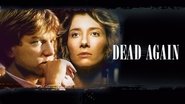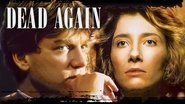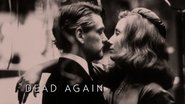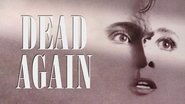GusF
Kenneth Branagh's second film as a director, this is an absolutely superb thriller which could hardly be more different from "Henry V". It is extremely evocative of the films of Orson Welles and Alfred Hitchcock and the film noir classics of the 1940s and 1950s. There is a wonderful reference to "Citizen Kane" in the scene in which Mike Church visits the elderly Gray Baker in a nursing home for information and he repeatedly asks for tobacco, as the elderly Jed Leland did in that film. The flawless and completely engrossing script was written by Scott Frank, who more recently wrote the decidedly lacklustre "The Wolverine". It is full of fantastic twists and marvellous dialogue. The cinematography is beautiful and the long uninterrupted takes, one of Branagh's trademarks, are brilliantly done, the best example being the first hypnosis scene. I have always been very nervous of knives and large scissors - perhaps I had a bad experience with them in a past life too! - so I found those parts of the film, particularly the denouement, extremely frightening. It took a few minutes after the film ended for my heart rate to return to normal.Branagh excels not only as a director but an actor too, playing the dual roles of Roman Strauss and Mike Church to perfection. The same is true of his then wife Emma Thompson as Margaret Strauss and Grace. It's a shame that they got divorced as their on screen chemistry is always electric, never more so than in "Much Ado About Nothing". The best performance in the film, however, comes from Derek Jacobi who is spellbinding as Franklyn Madson, particularly towards the end of the film. He was nominated for the BAFTA for Best Supporting Actor and should have received an Oscar nomination for the equivalent award. The film is pretty much dominated by those three actors but it also has strong performances from Wayne Knight, Robin Williams (in one of his first completely serious roles) and Hanna Schygulla. As I said in my review of "The Godfather Part III", I don't think that Andy García is a great actor but he was certainly better than in that film as he was given far more interesting material in spite of his far more limited screen time. That brings me to my only real criticism of the film: the old age make-up that he wore was rubbish. There is also a lovely and hilarious cameo by an uncredited Miriam Margoyles but Branagh's "mascot" Richard Briers is conspicuously absent.Overall, this is my second favourite film directed by Branagh after "Hamlet" and one of the best thrillers that I have ever seen.
romanorum1
This movie is about dual parallel stories occurring in Los Angeles in the late forties and again four decades later in the early nineties. The segments that make up 1948-1949 portion are in black and white flashbacks, and focus on the tragic love affair of music composer and conductor Roman (Kenneth Branagh) and pianist Margaret Strauss (Emma Thompson). The opening montage is made of compiled newspaper headlines and clippings that scream about the murder of Margaret (MURDER . . . TRIAL . . . GUILTY . . .). We quickly learn that Roman was convicted and executed for the scissor-murder of his wife. Roman goes to the electric chair proclaiming his innocence. Margaret had been suspicious that ominous housekeeper Inga (Hanna Schygulla) and her strange and stuttering son Frankie (Gregor Hesse) may have stolen jewelry items from Roman. But Inga had saved Roman from Hitler, so she kept her position. In turn, Roman was unhappy that his wife seemed to have taken an inordinate amount of interest with newspaper writer Gray Baker (Andy Garcia). The early 1990s part involves private investigator Mike Church (Branagh again), who has been asked by Father Timothy (Richard Easton), a priest, to unearth the identity of a woman (Thompson again) who has lost both her voice and her memory. She experiences terrible nightmares. Church had intended to drop off Thompson at the local madhouse, but after seeing conditions there he decided to put her up for a night or two. He gives her a faux-name, "Grace." Helpful newspaper man Piccolo Pete (Wayne Knight) puts her photograph in the local rag. Peculiar hypnotist (and antique dealer on the side!), Franklyn Madison (Derek Jacobi) responds quickly. Now Franklyn believes that a trauma from the woman's past is causing mute amnesia. When Franklyn, with permission from Mike Church, places Grace under hypnotism, she begins to have visions from the 1940s, i.e., Roman and Margaret's life (before Grace was born). Grace soon regains her voice, but not her memory. As she begins to grow closer to Mike, she notices the similarities between their lives and the previous ones of Roman and Margaret. As she looks even deeper into her past, she begins to fear Mike, feeling that – like Roman earlier – he will eventually kill her (as he is apparently Roman re-incarnated). But did Roman really kill Margaret? At a critical point Church tells Grace, "I would never hurt you, MARGARET" (Freudian slip), Grace screams right away. Cozy Carlisle (Robin Williams), ex-psychiatrist turned supermarket worker, soon warns Mike that he should indeed kill Grace before she kills him because fate is what it is. There are similarities between past and present lives. Reincarnation also means that one may return in a different gender: Grace could be Roman while Mike may be Margaret (heavy stuff here)! After researching, Piccolo Pete tells Grace that her real name is Amanda Sharp, an artist who lost her memory after being mugged. (Note the Salvador Dali copy of his famous painting in her spacious apartment ("The Persistence of Memory"). After, when Mike agrees to be hypnotized, he uncovers a startling secret. When Mike later locates the aged and decrepit Gray in a wretched condition at a nursing facility, he is told that Inga the housekeeper knew everything that went on in the Strauss household. When asked about her and son Frankie, Gray says "They had opened some sort of shop . . . AN-tiques." Mike's utter surprise sets up the denouement. Under Patrick Doyle's rousing musical score, there is a grand operatic clash with slow-motion shots and with cuts between the (black and white) past and (color) present times. It is a bit pretentious, though (but dig those gigantic scissors!).Yes, the story is complicated and relies on coincidence but it is a good tale, and very inventive. Each of the plot twists is given suitable build-up that avoids viewer confusion. One gets so swept away with the yarn and buys into the story that he/she ignores the coincidences (like Mike's meeting with Grace/Amanda in the first place). The character development is at a high level, while the sets and scenes are imaginatively well-done. Acting performances are first-rate. Derek Jacobi (of "I, Claudius" fame) is excellent as the hypnotist with a sinister agenda. An innovative touch occurs when he puts folks under not just to obtain information about the past, but also to pry from subconscious minds the whereabouts of certain antiques that may somehow fetch him big dollars. Robin Williams, as Cozy Carlisle, believing that the world has thoroughly porked him, leaves no room for anything but the blackest of humor in his top performance. Kenneth Branagh directed, and he and his then wife Emma Thompson shared the lead roles of both eras effectively, with the nod going to the latter. Matthew Leonetti's cinematography is effective at capturing moods. Whether or not you want believe in reincarnation does not matter (this writer does not) as the film's entertainment value is high. But you need to pay close attention to the story!
craigh01
I agree with the guy a few reviews ago that pointed out all the plot holes (quite a few of which I didn't notice).It's just TOO unbelievable. You try to suspend disbelief just to have fun but couldn't do it.The ending was incredibly silly. The twists seemed pointless. The acting was very good all around, though. It DID hold my attention until the very end, which is a plus. Once it was over I felt like I wasted my time.If you want a good mystery with great twists, watch Wild Things. The first twist in THAT movie was a shock! This movie, the twists were like, yeah, OK, why??
primona
Dead Again is one of the best films of the 1990s. It is a psychological thriller that will require your full attention. This includes the opening credits which provide critical background information. In the opening credits, you see old newspaper clippings from 1949 about the shocking death of pianist Margaret Strauss (Emma Thompson). Based on the clippings, we learn that Margaret's husband, conductor-composer Robert Strauss (Kenneth Branagh) claims a thief killed Margaret but he is later arrested for the crime after his fingerprints are found on a pair of scissors. Testimony from witnesses as well as his refusal to testify results in a guilty verdict and Strauss gets the death penalty. Most of the newspaper articles were written by Gray Baker (Andy Garcia) who visits Strauss at his request on the day of his execution. Strauss asks Baker to print that "He loved his wife and that he will love her forever" while getting his hair sheard with scissors by one of the guards. Baker asks Strauss why he is not afraid of death and Strauss states that he is not because things are "far from over". When Baker states, "But you still killed her, didn't you?", Strauss gets up and whispers something in his ear. Strauss is then escorted down the hallway to the death chamber. As Baker gets up to leave, he looks at the newspaper that was next to Strauss and notices the scissors that the guard had laid down are missing. We then see the scissors in Strauss's hand as Baker runs down the hallway yelling "stop" to Strauss. At the end of the hallway is a vision of Margaret Strauss and then we see Robert Strauss reach out and begin to stab her. We're instantly snapped forward into color (from black and white) and a modern day Emma Thompson awakes from her nightmare where she appears to live on the same property as where the Strauss' used to live. Now all of this happens during the first five minutes of the movie and if you're not hooked, then something's really wrong! The film goes back and forth between the past (always shown in black and white) and current day (shown in color). Suspicions abound as we piece together details from past lives and how they relate to the current characters. In doing so, we are left on the edge of our seats as new facts and twists are revealed.This is a "thinking person's movie" with a load of originality. If you like Hitchcock movies or you find films like the Matrix and Inception to be thrilling because of the twists and/or strong focus you must have while watching, you'll appreciate this film.








